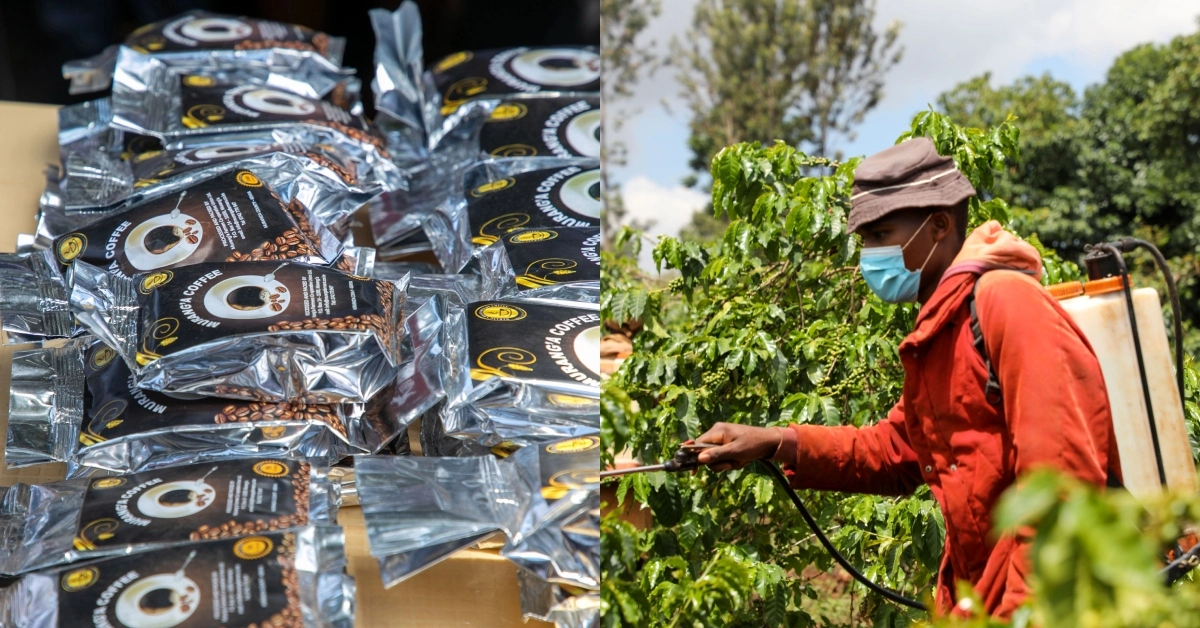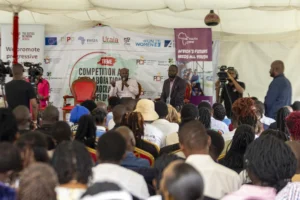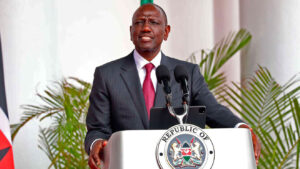First daughter, Charlene Ruto, last week beckoned the youth to venture into the lucrative coffee farming sector for income and shy away from depending entirely on white-collar jobs.
Speaking in Murang’a while attending a coffee planting drive with the deputy governor of Murang’a County Stephen Munania, Charlene expressed her joy over interacting with young people who participated in the drive.
Read also: Women, youth and smart agriculture in Africa
“My point of joy was interacting with young people who joined us as we mobilized them to embrace coffee farming,” Charlene said.
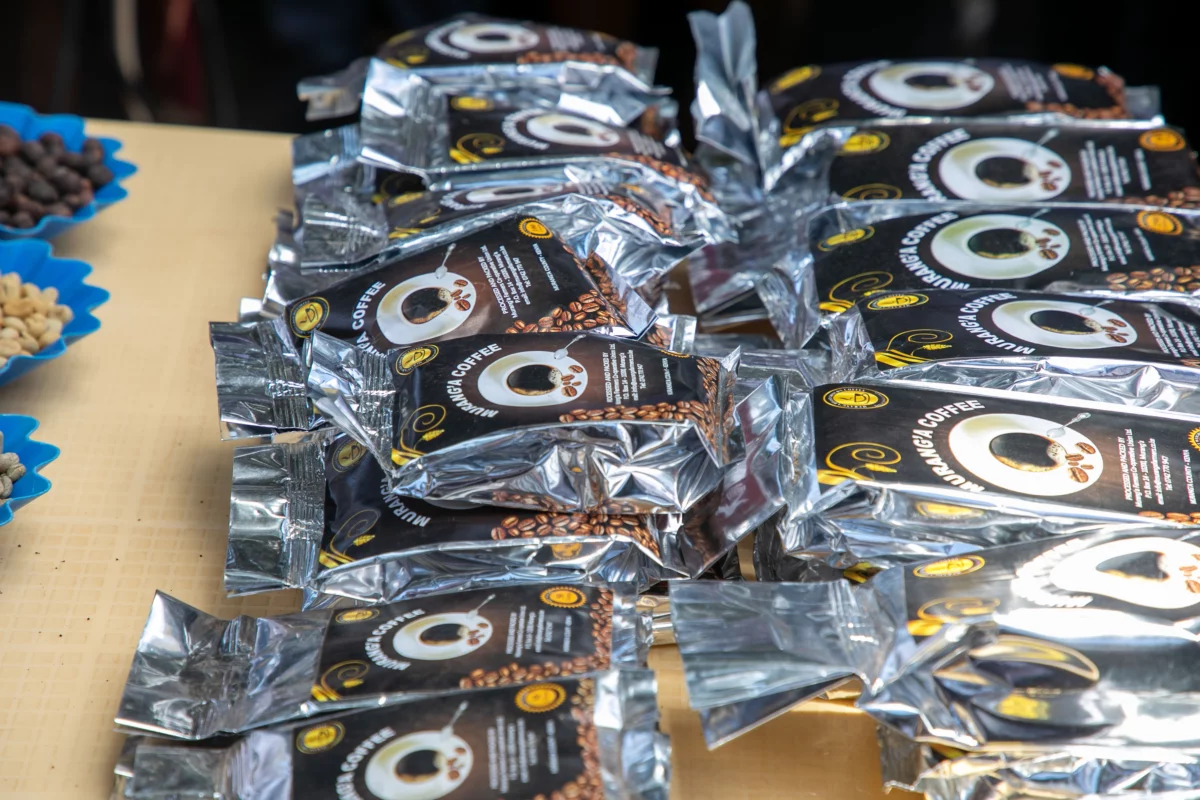
In an exclusive interview with Switch Media, Irene Kabochi, the CEO of the Murang’a Farmers Co-operative Union, said the county currently produces 28,000 metric tons of coffee, which is 28 million kilos, a figure which she said was below average. These numbers barely generate any profits for the local coffee farmers, hence the coffee drive initiated through the deputy governor’s office.
“As a county, we are currently doing around 28,000 metric tons. That is 28 million kgs that are below average for profitability in coffee production. What that means is that the farmer will do all the cop husbandry, but they’re still not able to produce a product that gives them profitability or creates a profit margin because of the production cost and all that,” she said.
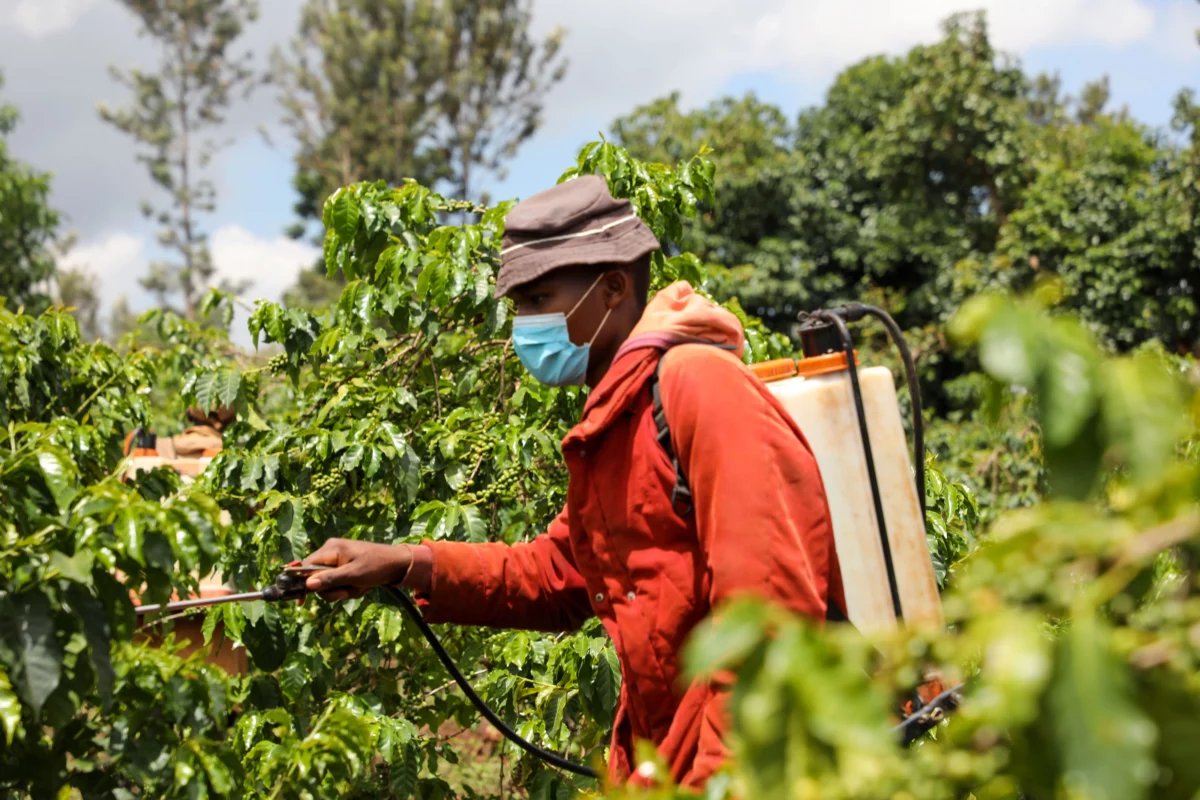
“The county government comes in and wishes to hold the farmer’s hand in terms of how do we then push production up to maximum levels. That can create income and improve livelihoods in the county. So basically that is the platform in which this project was birthed. The county, the deputy governor through the governor’s office, him being a youth, he saw it as an opportunity then to pull his admit into realizing there is money in our group business,”
Charlene, who considers herself a champion for youth employment and environmental conservation said that young people should embrace the idea of coffee farming, as an income-generating method instead of being fully fixated on white-collar jobs.
“We discussed the creation of income-generating opportunities in the coffee industry without waiting for white collar jobs & shared on the Coffee Value Chain in Agriculture,” she said.
During the coffee planting drive, Charlene and Stephen also discussed matters of coffee production in Murang’a County.
In Murang’a County, an average farmer has 209 trees with an annual production of 1.15 kgs per tree per year, while the potential production is 10 kgs of cherry per tree per year. This represents a gap of 8.9 kgs per tree per year. Unfortunately, coffee farmers in the county are facing several challenges, such as declining soil fertility, pests and diseases, high input costs, theft of parchment, and high processing and milling costs, among others. All these challenges lead to low returns from the crop, resulting in a reduced income of Ksh 9,881 per farmer per year, compared to a potential income of Ksh 120,500 per farmer per year.
I was elated to yet again visit Muran'ga County where we planted coffee seedlings together with Deputy Governor H.E. @StephenMunania at our 2-acre demonstration farm. During this visit, we got to see different types of coffee beans produced in the ever so robust Muran'ga County. pic.twitter.com/RKZ7nl6XgM
— Charlene Ruto (@charlruto) March 31, 2023
To address these challenges, there are ongoing interventions aimed at optimizing the small-scale farmers’ experience by promoting good agricultural practices. The Kenyan coffee industry is targeting the US market, where coffee consumption is growing at 6% in revenue and 4% in volume, and there is potential to improve coffee facilities in Kenya to improve returns from coffee. However, pests, climate change, and disease pose significant threats to the industry, and youth engagement is a key focus of the current government.
Kabochi said that the union hived two acres out of a 60-acre piece of land to Stephen and Charlene, who are the patrons, to kickstart the project last year. These are to become demonstration farms for the youth. So far, the project has been backed up by various stakeholders, including Kenya Planters Co-operative Union (KPCU), which is the project’s sponsor.
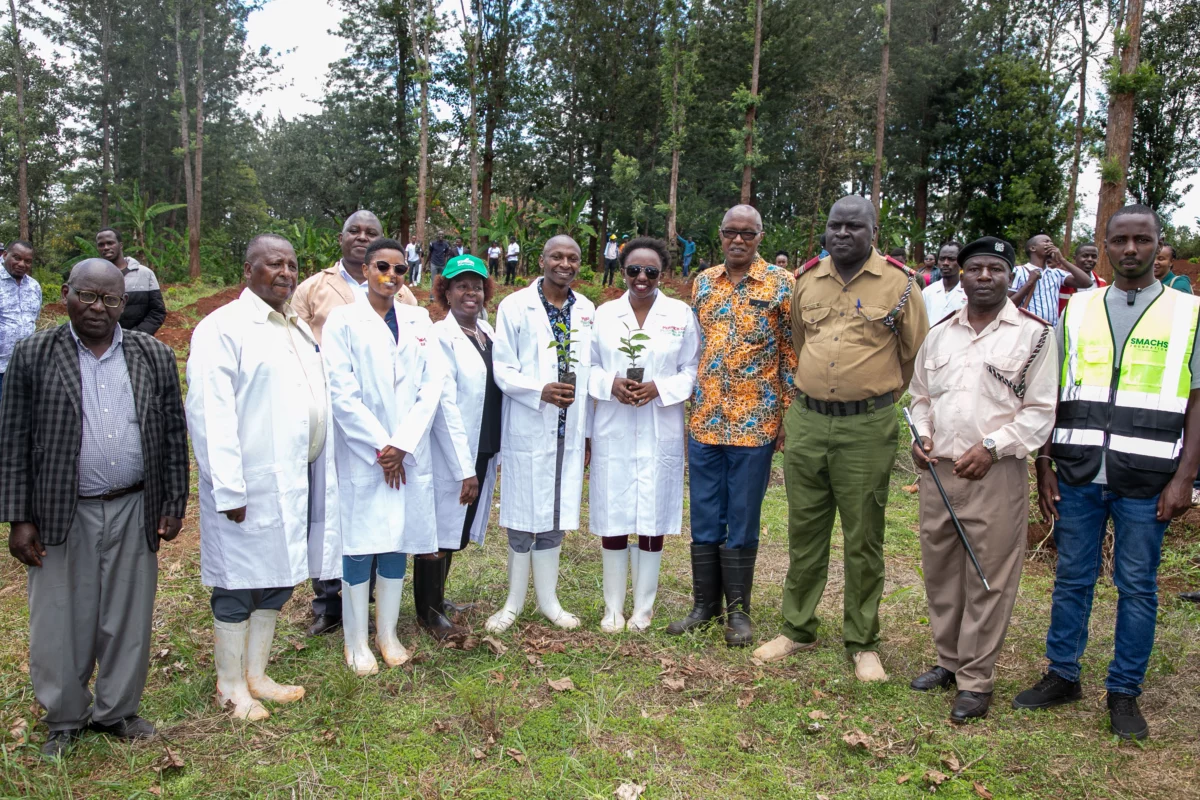
“It’s more so in coffee being a commodity. So that’s where we are now. And today. This started last year. Of course, we went through the process, but today then because of the rains, we are running with the process of the actual establishment. This is a 60-acre farm that belongs to the Muranga Farmer’s Cooperative Union,”
“What we did is that the county government approached us and we hived off two acres right at the roadside. On the two acres, we allocated one to the deputy governor and his counterpart, the first daughter. They are the patrons. The aim is for them to begin right from the establishment in demonstrating to the youth,” Kabochi observed.
The program targets a few youths selected from the 51 societies affiliated with the farmers’ union. They are taken in for ground training on how to turn coffee farming into a stable income generator. The county government has also supported this project through the provision of agronomists. Irene stated that with the right husbandry incorporated in the project, they expect to yield roughly 15-20 kilograms of coffee per bush as compared to the current yields which are less than two kilos.
The coffee industry in Murang’a County faces several challenges that affect the productivity and quality of the crop. Efforts are underway to improve the small-scale farmers’ experience and stabilize the market to ensure better returns from coffee.
This coffee project is in line with the Murang’a county government’s vision to revitalize the county’s coffee sector during its term in office.
Read also: Rachel Ruto establishes skills program at the Lang’ata Women’s prison


